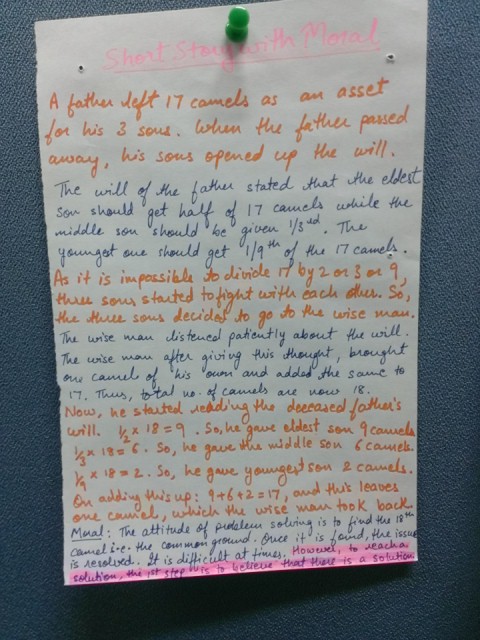How many times have we experienced the “aaj mann ni lag raha h” (oh no, am not into it, today) feeling!? Well, I know I have to do it. But, somehow, the mind is not into it. We end up either wasting time forcing ourselves to do it where our productivity falls due to lack of concentration. Or, we just do something else. When I know I must do it, and I think that I am interested, why can’t I still concentrate on what I need to do?
The answer to this interesting question lies in the essence of execution. Your goal is clear. You have a plan. But, you are unable to execute. How to execute well? What do natural executors do?
I maintained an excel sheet where I used to put the topic and number of hours completed. I used to tell myself that my progress depends on the number of hours I see in that xls. If 100 hours is the goal, whenever I touch 25, I used to be very happy. I celebrated by sharing on social media and with my friends. I get to 50, I again share. This does two things: 1) It pushes me to achieve it because I like the feeling when I share it. 2) It brings a fear of shame that if I do not finish, what will my friends think of me. This worked like a charm. I consistently finished the planned hours. I never cheated. But, this may not work for everyone. It depends on your nature.
Another technique that usually works is to convert the goal of “studying DLD” to the task of “writing notes for DLD” task. This task shows progress. At least, you can see the number of filled pages increasing. When there is a sense of progress, our brain is more motivated to do the task. Just reading pages after pages, or solving problem after problem, we get bored. This is because, there is no way to visibly feel the progress, especially when you do not have the big picture.
If these principles based on pride, fear of shame, and sense of progress fail, you may try transcendental approach. This approach makes a commitment to almighty or your mother that, if you do not complete this, let that girl whom I love be married to someone else. Now, at any cost, I want to finish this because, I don’t want to leave that girl to chance. What if, just in case, God really exists and what if the loss of that girl was due to my breach of promise.
At the end, this post will be incomplete if I don’t tell you one important thing. Do not force yourself too much. Sometimes, your mind know what is right for you. If nothing works, just relax, take your time to find something that works for you. As they say it, “Successful people maintain a positive focus in life no matter what is going on around them”. Good luck.
